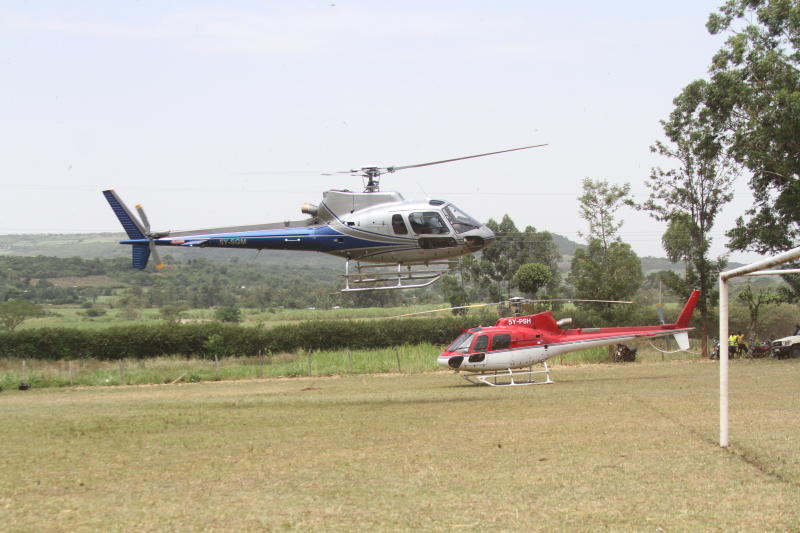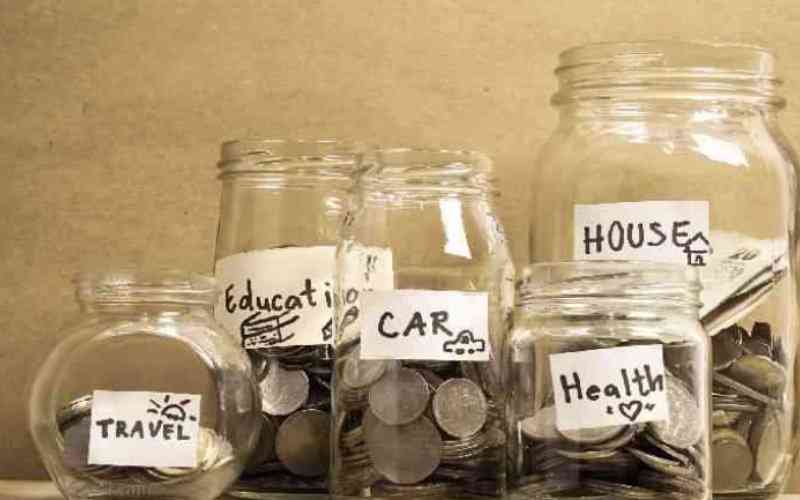State targets campaign cash with 25 per cent duty on helicopters, planes
News
By
Dominic Omondi
| Jul 07, 2021

The government is angling for a piece of the billions that could be used to import helicopters ahead of the 2022 polls among a raft of tax measures targeting a wide range of consumer products.
This has been revealed in the new approved measures on import duty rates for goods entering the East African Community (EAC) region.
In addition to aircraft, Kenya is going after imported sports and leather shoes, gas cylinders, suitcases, new clothes and all soaps in what is aimed at protecting the local industries, but which might also hurt small-scale traders and make the items unaffordable for majority of citizens.
For the second year running, importers of choppers and planes will have to pay a higher duty of 25 per cent as opposed to the common external tariff (CET) of zero per cent, with the National Treasury expecting to rake in some good revenue from the machines.
Politicians usually take to the skies as they crisscross the country to popularise themselves.
READ MORE
SACCO leaders explore risk management strategies amid economic shifts
LPG distributors converge to discuss safety, expansion
'Lost decade' of borrowing offers chance to recalibrate economy
Experts: Why your pockets are still empty despite lower prices
February inflation rate rises to 3.5 per cent
Amsons Group to squeeze out Bamburi minority shareholders
House team probes Sh6 billion NOC-Rubis deal
Treasury issues new Sh194b Eurobond to repay old debt
Macadamia harvesting to begin March 1 as export ban extended
Banks close gap with mobile money wallets as Kenyans shift to mobile apps
In 2019, Kenya imported planes, helicopters, and spacecraft worth $178 million (Sh19.2 billion), mostly from Ireland, the United States and Canada, according to an analysis of data from the Observatory Economic Complexity (OEC), which is run by the MIT Media Lab.
However, it is the tax on basic items that is likely to raise a storm.
After slapping cooking gas with 16 per cent VAT, the government had added 25 per cent duty on LPG cylinders from the CET of zero per cent, aimed at helping local manufacturers.
For lovers of Italian shoes, the government will collect 25 per cent duty on imported leather wear or $2.5 (Sh270) per pair, whichever is higher.
The same will apply to sandals and flip-flops as well as sports footwear. New clothes will be imported at a higher duty of 35 per cent from 25 per cent.
Chewing gum, sweets, butters and other fats will be imported at a rate of 30 per cent from 25 per cent.
However, the government has decided to spare rice, which will be imported at a rate of 35 per cent or $250 (Sh27,000) per tonne as opposed to the standard rate of 75 per cent or $345 (Sh37,260).
It is news that will not be received well by Kenyan farmers, with the country getting most of its rice from Pakistan - which is also the leading buyer of Kenya’s tea.
Moreover, the demand for rice is more than the country’s local production, which has seen Kenya fill the gap through imports.
Import duty has been a lucrative revenue stream for government, with the tax head playing a critical role in Kenya Revenue Authority surpassing its target in the financial year ended June 2021.
Numbers increased
Data from the Kenya Civil Aviation Authority (KCAA), the body that registers aircraft in the country and certifies aviation professionals, shows the number of choppers has increased as the general election nears.
KCAA Director General Gilbert Kibe said 67 choppers were registered in the three years to 2020.
Last year 40 choppers were registered compared to 24 and 17 in the previous two years.
“By the time of election, I am sure they will be more than 100,” said Captain Kibe during an interview with The Standard.
The spikes in registration, he said, begin about a year to six months before the elections.
“But it is for a limited period…about six months before election or at most one year. If the election is in August (2022) we expect the numbers to start rising starting August this year,” he said.
In April last year, National Treasury Cabinet Secretary Ukur Yatani noted that while helicopters and spare parts were exempted from tax, there was little meaningful benefit to ordinary citizens.
The choppers and planes were exempted from taxes because they were critical for humanitarian work, with most of them used to transport food and medicine to remote areas of the country.
“You buy an engine for a plane, we charge no taxes. And if you ask how the ordinary mwananchi is going to benefit from it, it is not so much,” said Mr Yatani.
In 2020, the government also imposed value-added tax (VAT) and import declaration fee (IDF) on leasing or hiring of some types of helicopters and other aircraft.
The taxman collected Sh1.669 trillion.
This represented a performance rate of 103 per cent, or a surplus of Sh18.2 billion.

